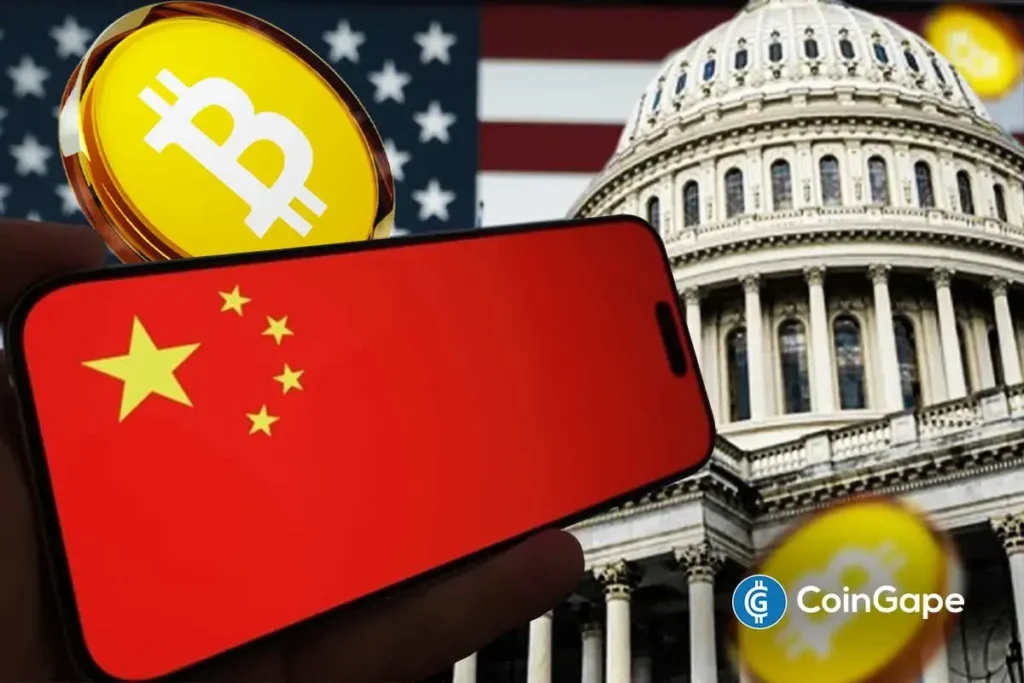U.S.-China Tensions Escalate Over Alleged Bitcoin Heist
In recent developments, China’s National Computer Virus Emergency Response Center (CVERC) has leveled serious accusations against the U.S. government, claiming it was responsible for the notorious hack on the LuBian mining pool. Reports suggest that a staggering 127,272 Bitcoin (BTC) were illicitly taken in this incident, which has fueled escalating tensions between the two global superpowers, especially as both nations increasingly embrace cryptocurrency. The contentious landscape of crypto ownership has become significantly more complex, given that both the U.S. and China hold the highest reserves of Bitcoin among government entities.
Allegations of Theft: China’s Accusation Against the U.S.
According to a recent report from the Global Times, the CVERC alleges that the theft of the 127,272 BTC was orchestrated by state-sponsored hackers from the U.S. This Bitcoin originally belonged to Chen Zhi, the Chairman of Cambodia’s Prince Group. This incident is rife with speculation, particularly since the U.S. Department of Justice (DOJ) has recently filed a forfeiture order for the same Bitcoin, which they claim was seized during an investigation into a fraudulent scheme known as “pig butchering.” The fact that the DOJ confirmed custody of these funds effectively ties it back to their current narrative of U.S. involvement in the LuBian hack, intensifying the geopolitical stakes involved in cryptocurrency.
On-Chain Analytics Bring Clarity Amidst Chaos
Compounding the allegations, on-chain analytics platform Arkham Intelligence suggests that the hacked funds were dormant until recently and have now been traced to a wallet tagged as belonging to the U.S. government. This revelation has added weight to the CVERC’s claims, suggesting a sophisticated level of state-level involvement. If these allegations are true, they underscore the vulnerabilities present in the cryptocurrency landscape, where the lines separating nation-state actions and criminal activity become increasingly blurred.
The Cryptocurrency Arms Race: U.S. vs. China
As the tussle for Bitcoin supremacy intensifies, both the U.S. and China are stepping up their approaches to cryptocurrency. BitcoinTreasuries data indicates that the United States currently controls approximately 326,588 BTC, which includes the aforementioned coins seized from Chen Zhi. On the other hand, China boasts a significant reserve, holding around 190,000 BTC. With each government recognizing the strategic value of cryptocurrency, having substantial reserves not only strengthens their financial standing but also serves as a tool for geopolitical leverage as they navigate an increasingly digital economy.
Policy Directions and Strategic Moves
Former U.S. President Donald Trump has consistently emphasized the need for America to take the lead in the crypto space, particularly as the competition with China grows. The U.S. Congress is currently working on a comprehensive crypto market structure bill aimed at providing regulatory clarity to the industry, an essential step to fostering innovation and attracting investment. Moreover, pro-crypto Senator Cynthia Lummis has introduced the BITCOIN Act, which aims to establish a strategic Bitcoin reserve for the United States, solidifying the government’s intentions to remain a key player in the global cryptocurrency market.
Global Engagement: The Rise of Other Countries in Crypto
While the focus remains on the U.S. and China, other nations are also making strides in establishing their own Bitcoin reserves. Brazil is actively pushing for a BTC reserve, while Kyrgyzstan has already created a national crypto reserve that encompasses multiple assets, including Binance Coin (BNB). As countries begin to recognize the value of digital currencies, the implications of these national strategies could have far-reaching effects on global economic dynamics and resource allocation in the cryptocurrency arena.
Conclusion: The Future of Cryptocurrency and Geopolitical Tensions
The allegations surrounding the LuBian hack serve as a crucial reminder of the geopolitical tensions surrounding cryptocurrency as nation-states strive for economic advantage. As China and the U.S. engage in a race for dominance over Bitcoin, the broader implications of their conflicting narratives could set the tone for the future of international relations in the digital age. With global actors increasingly identifying cryptocurrency as an important financial tool, the need for regulatory frameworks and robust cyber defenses will become even more essential in the coming years. The unfolding saga presents opportunities and challenges that will shape the landscape of cryptocurrency well into the future.
Through understanding these dynamics, both investors and policymakers can better navigate the intricacies of the digital currency ecosystem, ensuring they are prepared for the financial realities of tomorrow.


